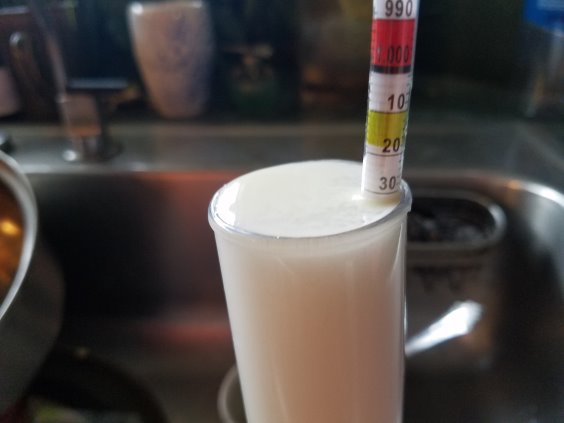flars
Well-Known Member
Which brand of DME did you use and what style? What was your fermentation temperature and did the fermentation temperature hold steady? How old was the yeast pitched?
In my opinion FG is a function of the fermentability of the wort and the yeast used not the amount of extract used. As long as the yeast can handle the ABV up to the finish of the fermentation the FG should not increase.
I have compared two beers I brew on a regular basis with the same yeast. An IPA and an American amber. Difference in the amount of extract is a few ounce shy of three pounds. Both of these beers consistently finish 0.001 at/or either side of 1.007.
In my opinion FG is a function of the fermentability of the wort and the yeast used not the amount of extract used. As long as the yeast can handle the ABV up to the finish of the fermentation the FG should not increase.
I have compared two beers I brew on a regular basis with the same yeast. An IPA and an American amber. Difference in the amount of extract is a few ounce shy of three pounds. Both of these beers consistently finish 0.001 at/or either side of 1.007.















![Craft A Brew - Safale BE-256 Yeast - Fermentis - Belgian Ale Dry Yeast - For Belgian & Strong Ales - Ingredients for Home Brewing - Beer Making Supplies - [3 Pack]](https://m.media-amazon.com/images/I/51bcKEwQmWL._SL500_.jpg)
























